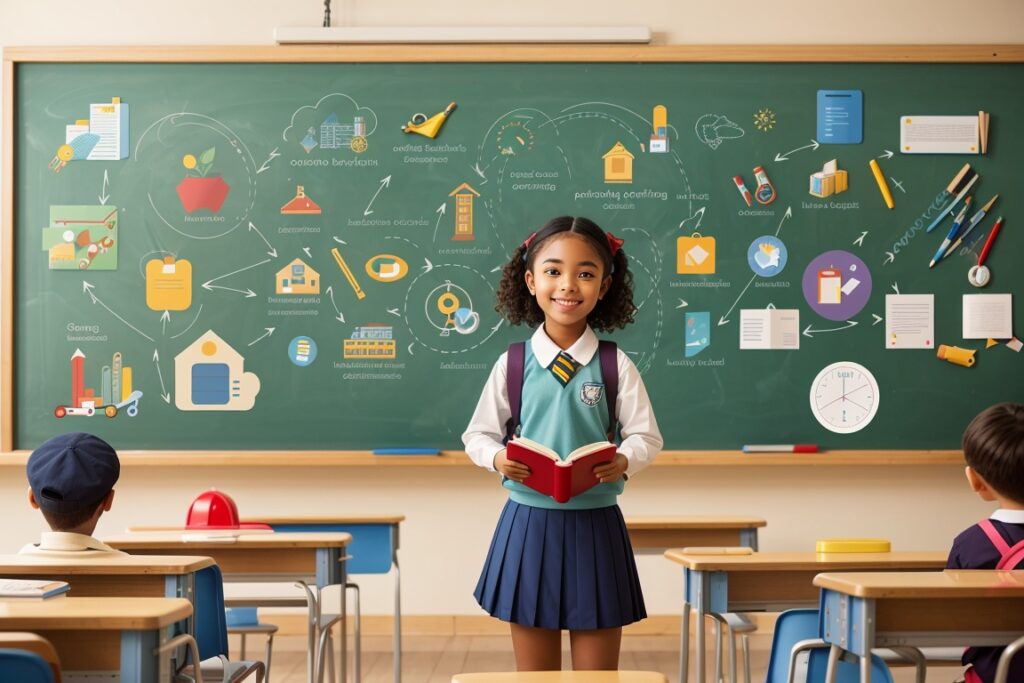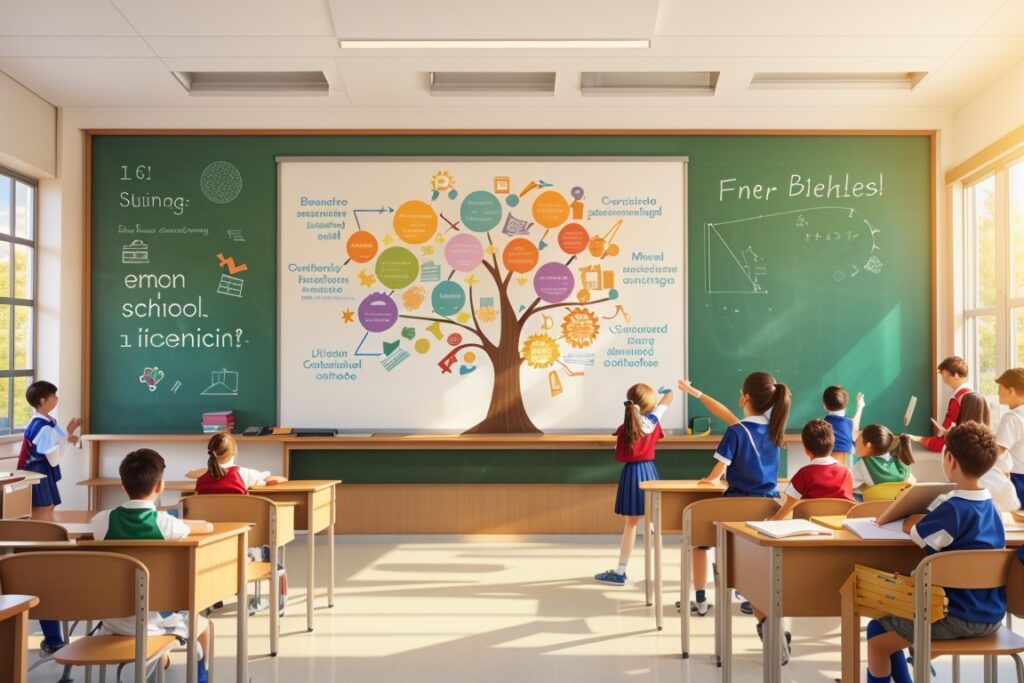What Makes a School Effective? The Key Elements of School Success
What Makes a School Effective
Schools are more than just places where students learn academic skills and knowledge. They are also environments where students develop their social, emotional, and personal competencies, as well as their values and attitudes. Schools play a crucial role in shaping the future of society, as they prepare students to become responsible and productive citizens.

But what makes a school effective? How can we measure the quality and impact of a school on its students and the community? There is no simple answer to these questions, as different schools may have different goals, contexts, and challenges. However, there are some common elements that have been identified by researchers and practitioners as essential for school success.

These elements are:
- A positive school climate
- Productive instructional strategies
- Social-emotional development
- Individualized supports
Let us look at each of these elements in more detail.

A Positive School Climate
A positive school climate is one that fosters a sense of belonging, safety, respect, and trust among all members of the school community. It is characterized by high expectations, clear norms and rules, positive relationships, and effective communication. A positive school climate also promotes a culture of collaboration, innovation, and continuous improvement.
It also enhances teacher effectiveness, satisfaction, retention, and collaboration2.
Some of the strategies that can help create a positive school climate are:
- Developing a shared vision and mission for the school that reflects the values and goals of the school community
- Establishing clear and consistent expectations and rules for student behavior and academic performance
- Providing regular feedback and recognition to students and teachers for their efforts and achievements
- Creating opportunities for student voice and participation in school decision-making and activities
- Encouraging positive interactions and cooperation among students, teachers, parents, and other stakeholders
- Providing a safe, clean, comfortable, and stimulating physical environment for learning
- Addressing any issues or conflicts that arise in a timely and respectful manner
Productive Instructional Strategies
Productive instructional strategies are those that engage students in meaningful and challenging learning experiences that align with the curriculum standards and objectives. They are based on sound pedagogical principles and practices that cater to the diverse needs and interests of students. They also involve frequent assessment and feedback to monitor student progress and adjust instruction accordingly.
Productive instructional strategies have been shown to improve student learning outcomes, such as knowledge acquisition, skill development, problem-solving ability, critical thinking capacity, creativity, and metacognition. They also increase student motivation, engagement, self-efficacy, and autonomy. Furthermore, productive instructional strategies prepare students for lifelong learning and career readiness in the 21st century.
Some of the strategies that can enhance instruction are:
- Using a variety of instructional methods and media to deliver content and facilitate learning
- Differentiating instruction according to the readiness, interests, and preferences of students
- Integrating cross-curricular themes and connections to real-world contexts
- Providing opportunities for inquiry-based learning, project-based learning, cooperative learning, experiential learning, etc.
- Incorporating higher-order thinking skills such as analysis, synthesis, evaluation

Social-emotional development
Social-emotional development is the term used to describe how children learn to understand and manage their emotions, form and maintain positive relationships, and develop empathy and compassion for others. Social-emotional development is an important aspect of school success, as it influences students’ academic achievement, motivation, engagement, behavior, and well-being.
Some of the benefits of social-emotional development for students are:
- It helps them to cope with stress, frustration, and failure, and to regulate their impulses and emotions
- It enables them to communicate effectively, collaborate with others, and resolve conflicts peacefully
- It fosters their self-awareness, self-confidence, self-esteem, and self-respect
- It enhances their creativity, curiosity, and critical thinking skills
- It supports their moral and ethical development and their respect for diversity and human rights

Some of the strategies of What Makes a School Effective that can promote social-emotional development in schools are:
- Implementing a comprehensive social-emotional learning (SEL) curriculum that covers the core competencies of self-awareness, self-management, social awareness, relationship skills, and responsible decision-making
- Providing opportunities for students to participate in extracurricular activities, clubs, sports, arts, etc. that allow them to express themselves and explore their interests
- Creating a caring and supportive school culture that values and celebrates each student’s strengths, talents, and achievements
- Encouraging positive interactions and cooperation among students, teachers, parents, and other stakeholders
- Providing counseling and guidance services for students who need emotional or psychological support
Social-emotional development is a key element of school success that can help students thrive in the post-pandemic world. By fostering social-emotional development in schools, we can prepare students to become resilient, responsible, and compassionate citizens.
What Makes a School Effective
Individualized supports (What Makes a School Effective)
Individualized supports are one of the key elements of school success, according to some researchers and educators. Individualized supports refer to the practices and strategies that are tailored to the specific needs, abilities, interests, and goals of each student. Individualized supports can help students overcome barriers to learning, enhance their motivation and engagement, and foster their academic and social-emotional development.
Discover more from News 24 Media
Subscribe to get the latest posts to your email.


